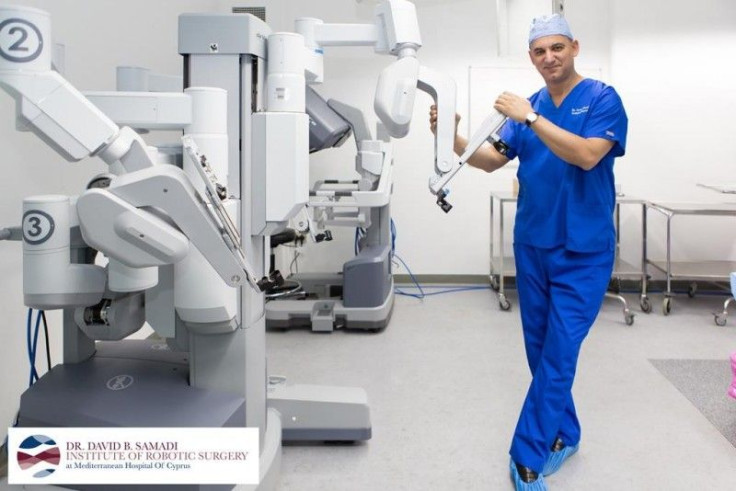American surgeon pioneer in robotic surgery of prostate cancer opens institute in Cyprus

To avoid suffering from prostate cancer when they reach mid-life, many males are following the advice of a Harvard Medical School study to have daily orgasms. The research, released in late May, found that daily climax reduces by 20 percent risk of developing prostate cancer.
However, the study may be too late for some men who already have the male ailment. According to the National Cancer Institute, every year, 137.9 men for every 100,000 males are diagnosed as new cases of prostate cancer, while annually 21.4 men for every 100,000 die of the ailment.
But prostate cancer, if diagnosed early, is treatable. Among the options available, depending on the situation, are expectant management, surgery, radiation therapy, cryosurgery, hormone therapy, chemotherapy, vaccine and bone-directed treatment.
In 1985, the first documented use of robot-assisted surgery was recorded. That procedure, used the PUMA 560 robotic surgical arm for a delicate neurosurgical biopsy which is a non-laparoscopic surgery. Using a robot provides greater precision when it is used for procedures that are minimally invasive like laparoscopies.
Other robots emerged, such as the AESOP system in 1990 and the da Vinci Surgery System in 2000 which got the US Food and Drug Administration nod for general laparoscopy, according to the Dr David B. Samadi Institute of Robotic Surgery. With robotic surgery systems, removing human contact during surgery becomes possible to cut or eliminate intra-operative infection.
Samadi is one of the pioneers of the use of using robotic surgery for prostate cancer in the US. He has performed over 6,400 robotic surgeries. Samadi is sharing his knowledge by opening an institute that would educate and train surgeons in Europe, Asia and Africa in advance techniques of prostate cancer robotic procedure.
On July 25, 2015, Samadi formally opened the Institute of Robotic Surgery at the Mediterranean Hospital in Limassol, Cyprus. No less than Cypriot President Nikos Anastasiades attended the event. The institute, which has acquired high-tech and advanced medical equipment, including MRI and CT scanners, opened its doors to doctors and surgeons from neighbouring region. Samadi will train them in urologic procedures, with special concentration on Da Vinci Prostate Surgery.
Contact the writer at feedback@ibtimes.com.au or tell us what you think below





















